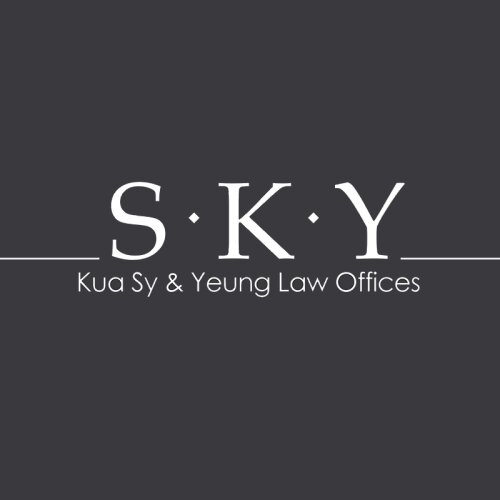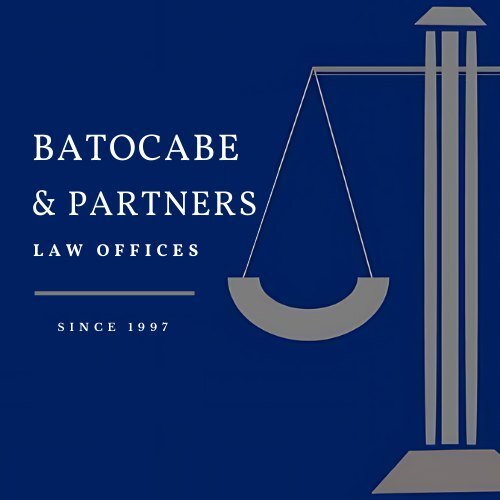Best Native People Lawyers in Pasig
Share your needs with us, get contacted by law firms.
Free. Takes 2 min.
List of the best lawyers in Pasig, Philippines
About Native People Law in Pasig, Philippines
The Native People in Pasig, Philippines, primarily refer to indigenous communities recognized by the Philippine government. These groups often have distinct cultural practices, languages, and socio-economic structures. The laws concerning Native People in the Philippines are geared towards protecting these communities' rights and preserving their cultural heritage. This includes land rights, self-governance, and cultural preservation. Understanding the specific needs and legal protections for Native People in areas like Pasig can be complex, and navigating these often requires knowledgeable legal assistance.
Why You May Need a Lawyer
Individuals within the Native People communities in Pasig may require legal assistance in various situations, such as:
- Land disputes, especially regarding ancestral domain claims. - Intellectual property rights related to cultural heritage and traditional knowledge. - Ensuring compliance with laws intended to protect and benefit indigenous communities. - Navigating issues related to discrimination or marginalization. - Assistance in community development projects requiring legal negotiations or contracts.
Local Laws Overview
The Indigenous Peoples’ Rights Act (IPRA) is the primary legislation relevant to Native People across the Philippines, including those in Pasig. Key aspects of this law include:
- Recognition of ancestral domain and lands with rights to develop, manage, and conserve as the community sees fit. - Right to practice and revitalize cultural traditions and languages. - Self-governance and empowerment for indigenous communities. - Rights to participate in decision-making processes affecting their ancestral land and community welfare.
Frequently Asked Questions
Who qualifies as Native People in Pasig?
Native People in Pasig primarily include individuals who are part of indigenous communities that are recognized by the government, often defined by their distinct historical and cultural identities.
What are ancestral domains?
Ancestral domains refer to lands traditionally owned or possessed by indigenous peoples, passed down through generations, and recognized legally under IPRA.
How can Native People secure land rights?
Native People can secure land rights by obtaining a Certificate of Ancestral Domain Title (CADT) through the National Commission on Indigenous Peoples (NCIP), which provides legal recognition of their ownership.
Is consulting a lawyer necessary for property disputes?
While not always necessary, consulting a lawyer experienced in indigenous property law can be highly beneficial in navigating complex legal processes and ensuring rights are upheld.
What protections exist against discrimination?
The IPRA and other national laws safeguard indigenous communities against discrimination, promoting equality and providing means for legal redress in case of rights violations.
Can indigenous communities govern themselves?
Yes, IPRA recognizes the right of indigenous communities to self-govern, allowing them to manage internal affairs and enact customary laws in harmonization with national laws.
What role does the NCIP play?
The NCIP is a governmental body that oversees the implementation of policies and laws relevant to indigenous peoples, offering various support services including legal assistance and advocacy.
How are traditional practices protected?
Traditional practices are protected under IPRA, which allows indigenous communities to practice, develop, and transmit cultural norms and traditions freely.
Are there legal pathways to resolve community disputes?
Yes, indigenous peoples can use customary laws and practices to resolve disputes within their communities, alongside formal legal systems available through courts and government bodies.
What is Free, Prior, and Informed Consent (FPIC)?
FPIC is a principle requiring that indigenous communities must be fully informed and consent freely to any projects affecting their lands, resources, or well-being before implementation.
Additional Resources
Here are some recommended resources for further assistance and information:
- National Commission on Indigenous Peoples (NCIP): Offers legal support and resources tailored to indigenous peoples. - Philippine Indigenous Peoples Links: Provides networking and information services to indigenous communities. - Cultural Heritage Groups: Local organizations that support the preservation of cultural practices and protect indigenous rights.
Next Steps
If you find yourself or your community in need of legal assistance:
- Consider consulting a lawyer specializing in indigenous peoples’ law to better understand your rights and options. - Engage with organizations like the NCIP to access resources and support. - Attend local community meetings where indigenous issues are discussed to stay informed on legal developments and opportunities for advocacy.
Lawzana helps you find the best lawyers and law firms in Pasig through a curated and pre-screened list of qualified legal professionals. Our platform offers rankings and detailed profiles of attorneys and law firms, allowing you to compare based on practice areas, including Native People, experience, and client feedback.
Each profile includes a description of the firm's areas of practice, client reviews, team members and partners, year of establishment, spoken languages, office locations, contact information, social media presence, and any published articles or resources. Most firms on our platform speak English and are experienced in both local and international legal matters.
Get a quote from top-rated law firms in Pasig, Philippines — quickly, securely, and without unnecessary hassle.
Disclaimer:
The information provided on this page is for general informational purposes only and does not constitute legal advice. While we strive to ensure the accuracy and relevance of the content, legal information may change over time, and interpretations of the law can vary. You should always consult with a qualified legal professional for advice specific to your situation.
We disclaim all liability for actions taken or not taken based on the content of this page. If you believe any information is incorrect or outdated, please contact us, and we will review and update it where appropriate.










